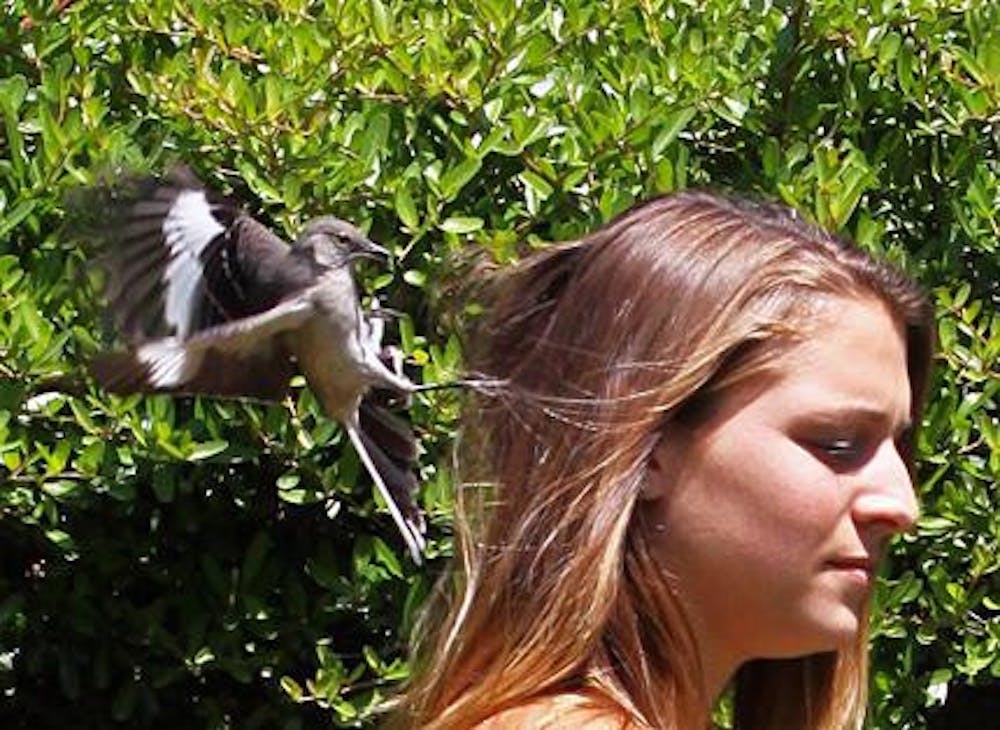Mockingbirds don't take harassment lightly.
In fact, they're likely to hold a grudge, a recent UF study found.
The birds remember people who threaten their nests and react sooner to targets they see as more threatening, according to the study published by several professors and students in the Proceedings of the National Academy of Sciences.
"We may view all mockingbirds as alike, but it certainly doesn't work the other way around," said Douglas Levey, a UF professor who headed the study. "When you walk by a mockingbird perched on a rail near Reitz Union, you are his business."
While researching urban mockingbird behavior in Gainesville, Christine Stracey, a UF biology graduate student, noticed that the birds became defensive when sighting her, while they ignored homeowners, gardeners and other non-threatening humans, she said.
In some cases, she believed that the birds could even spot her car, which she started parking out of sight of mockingbird nests.
After Stracey discussed the behavior with Levey, they developed a study in which 24 nests were located on UF's campus, and the birds' reactions to aggressors were tested.
A study participant would approach and touch a nest four days in a row, and on the fifth day a new participant would repeat the process.
The mockingbirds would leave their nests increasingly early as the first study participant approached but did not react to the second participant until threatened.
This behavior gives the mockingbird an edge in urban environments, Stracey said.
"Imagine if you were a mockingbird and you attacked everyone you saw," she said. "In a place like Butler Plaza or on campus, you wouldn't have any time to feed yourself or your babies."
UF research video showing mockingbirds attacking returning students they see as threats.






